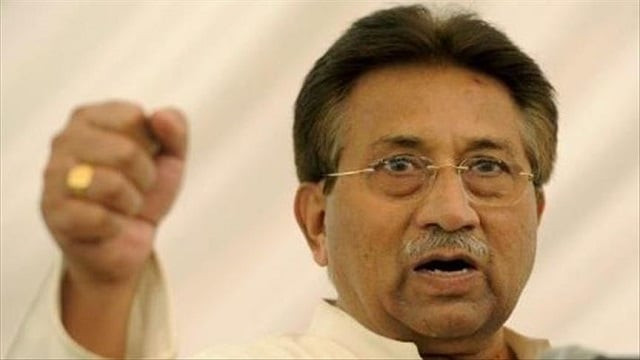Musharraf – man of war and peace
Friends describe the former military ruler a professional soldier but also the one believing in show of power

Friends describe Musharraf a professional soldier, but also one believing in show of power. PHOTO: ANADOLU AGENCY
Known for contradictions, he introduced concept of basic democracy, allowed a rush of news channels dotting the country's landscape, familiarised transparency in government decisions, but at the same time subverted democracy, held the Constitution in abeyance and dismissed an elected government.
Those, who have dealt with Musharraf, point out that he was both inspirational and exasperating, selfish and selfless also at the same time humble and egotistical.
Special court sentences Musharraf to death in high treason case
On Tuesday, he became the second head of state in Pakistan after Zulfiqar Ali Bhutto, who was handed over death sentence by the court.
The former president was held guilty of high treason for imposing state of emergency on November 3, 2007 by keeping the Constitution in abeyance.
On October 12, 1999 four months after the Kargil war ended, Musharraf in a coup ousted and the then prime minister, Nawaz Sharif, amid high drama. A year earlier, Nawaz had personally promoted him to the rank of army chief. He ruled Pakistan till 2008. The eventful period led the country to join the US-led war on terror in Afghanistan.
Believed in solo fights
Friends describe Musharraf a professional soldier, but also a person who believed in show of power.
He was born on August 11, 1943 in New Delhi. His family moved to Karachi after the birth of Pakistan in 1947. His father Syed Musharrafuddin was an accounts officer. Musharraf could speak Turkish language fluently, as he had learnt it while studying a war course at Turkey's Military Staff College.
After ousting Nawaz from power, he disguised as “chief executive” until 2002, till he forced then president Rafiq Tarar to resign and declared himself president. He continued to hold this post till he was removed in 2008.
Retired brigadier of Pakistan Army Said Nazir said that Musharraf was the “main architect” of Kargil war between Pakistan and India in 1999.
The war took place months after then premier Nawaz Sharif had signed a peace accord with his Indian counterpart Atal Bihari Vajpayee in Lahore.
“Musharraf was a commando who believed more in physical power than use of brain,” Nazir said.
Musharraf was in Sri Lanka on an official tour when the then prime minister decided to replace him with Gen Ziauddin, the then chief of the country's spy agency — Inter-Services Intelligence (ISI). The plane carrying Musharraf was not allowed to land at the Karachi airport by Nawaz, which forced the army to react. “This step by [Nawaz] Sharif invited reaction from within the army,” a former Pakistan Army general, who has served at many important positions told Anadolu Agency.
Charges against Musharraf
Four charges were brought against him in 2013 including one that of treason under Article 6 of the Constitution. The case relates to “state of emergency”, suspending the Constitution and detaining senior political leaders and judges. He was named in murder of Akbar Bugti, former chief minister of Balochistan. He was also named in the murder of former prime minister Benazir Bhutto.
Ultimately, he was charged of confining judges, arresting and threatening besides illegally suspending the Constitution. A special court tried Musharraf for six years. However, the former military ruler appeared before the court only a couple of times.
Special court verdict against Musharraf received with ‘lot of pain and anguish’ by army: ISPR
Nowadays he is Dubai where he is battling multiple disease including cardiac. The decision of the special court to hang him can be challenged in higher courts.
Brigadier Nazir also said that Musharraf’s decision to join the US war on terror proved a monumental mistake.
''Pakistan suffered massively. Besides, it was wrong to send in army to Fata [now part of Khyber Pakhtunkhwa province]. It generated hate and people disliked it,'' he said.
Many people, however, believe that Musharraf brought slew of reforms in the Pakistani system. He is also credited for increasing role of women in parliament and somehow stabilising the economy.
The former military general is reported to have expressed his "surprise" over such an instant response of Turkish people to the disaster due to the earthquake.












1724319076-0/Untitled-design-(5)1724319076-0-208x130.webp)






COMMENTS
Comments are moderated and generally will be posted if they are on-topic and not abusive.
For more information, please see our Comments FAQ